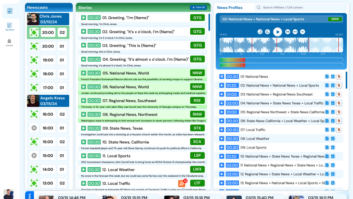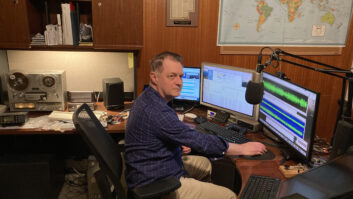Horses and broadcasting have gone hand-in-hand — or should I say hand-in-hoof— for a long time in the Rocky Mountains.
That’s what I hear from Bruce Anderson, director of engineering for Four Corners Broadcasting/Western Slope Communications in Durango, Colo.
He was responding to my March 26 story on Wyoming Public Radio CE Reid Fletcher and PD Roger Adams riding horses to gain access to their transmitter site on top of Copper Mountain.
Anderson says he has ridden horses to his company’s transmitter and translator sites also, although mainly in warmer weather.
Horses are a good transportation option in the spring, for example, says Anderson: “The time of the year snow equipment doesn’t hack it, and the roads are usually too goopy for pickups. Besides, horses get around windfall, rockslides and swollen streams easier than motorized vehicles.”
He cites examples of using “horsepower” for broadcast duties:
Years ago one of Four Corners’ AM sites was built partially by horsepower. Further west, KTOT in Big Bear Lake, Calif., used a mule to take field strength readings in the 1960s. Several years ago a friend, the translator engineer of an Albuquerque television station, had to hire a couple of horses to help build his facility outside of Taos, N.M. (He did have a difficult time explaining that to the bean-counters back east.)
Utility company meter-readers have lost transmissions, oil pans and numerous other parts from their vehicles by getting up to a couple of Four Corners’ sites, says Anderson.
Another contract person has done the same job more efficiently and often quicker by riding her horse to the same locations. “She loves it. It exercises her horse, and — with the price of fuel today — it’s a heck of a lot cheaper.”
If you’ve got unusual ways to access transmission sites, let me know at [email protected].












